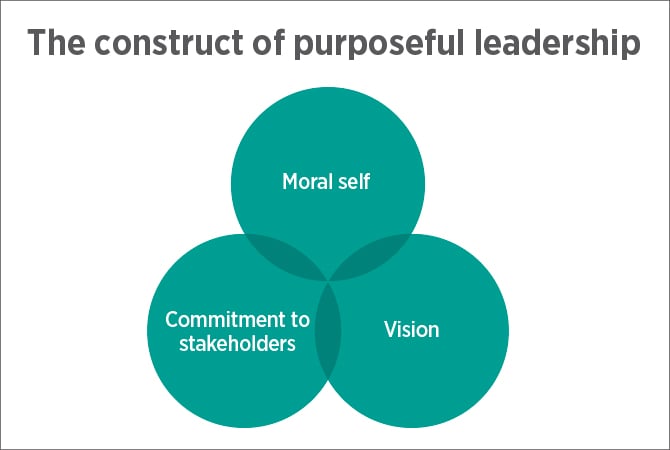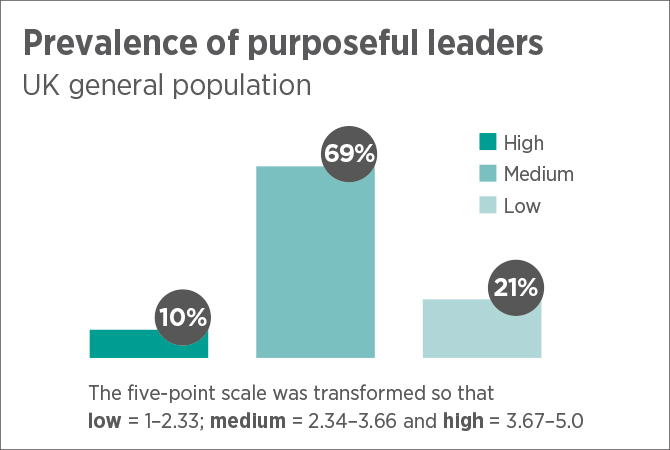Purposeful leadership
This report conceptualises a construct of purposeful leadership and investigates the impact it has on various employee and organisational outcomes
This report conceptualises a construct of purposeful leadership and investigates the impact it has on various employee and organisational outcomes
Exploring the concept of purposeful leadership, this research draws on findings from surveys, interviews and focus groups to identify links between purposeful leadership, ethical leadership behaviours and various employee and organisational outcomes. Our research also investigates how organisations can nurture an environment where leaders can be purposeful.

There's been considerable interest in the notion of purposeful organisations in recent years, driven by growing levels of distrust and disillusionment with what are often regarded as the short-termist, financial imperatives driving contemporary firms. Typically, the attributes of purposeful organisations – societal responsibility, values and ethics – are simply translated into the qualities that characterise their ideal leaders. But what type of leaders do purposeful organisations really need?
In this study, we answer this question by conceptualising a new construct of purposeful leadership, which includes the extent to which a leader has a strong moral self, a vision for his or her team, and whether they take an ethical approach to leadership marked by a commitment to stakeholders. We also investigate the impact it has on various employee and organisational outcomes.
The research is based on case studies from five organisations in different sectors and a survey of a representative sample of the UK working population. Detailed methodology is provided in the technical report, which you can find below, along with an infographic and discussion paper.
If you’re interested in finding out more about what leaders and their followers said at the case study organisations, take a look at our interview with Patrick Brione, Head of Policy and Research, IPA.
Download the reports below
Report
Ksenia Zheltoukhova, Research Adviser for the CIPD, unpacks the meaning of purposeful leadership.
Report
Wilson Wong, Head of Insight and Futures at the CIPD, underscores the importance of this concept.

Browse our A–Z catalogue of information, guidance and resources covering all aspects of people practice.
Discover our practice guidance and recommendations to tackle bullying and harassment in the workplace.

Listen to our new fortnightly podcast providing expert insights from HR leaders on the topical issues impacting the world of work
Listen now
14 May, 2024
The CIPD celebrates International HR Day 2024
The basics of leadership and how to develop leaders in the workplace

Peter Cheese, the CIPD's chief executive, looks at the challenges and opportunities faced by today’s business leaders and the strategic priorities needed to drive future success

A Northern Ireland summary of the CIPD Good Work Index 2024 survey report


Dedicated analysis of job quality and its impact on working lives in Scotland

A North of England summary of the CIPD Good Work Index 2024 survey report